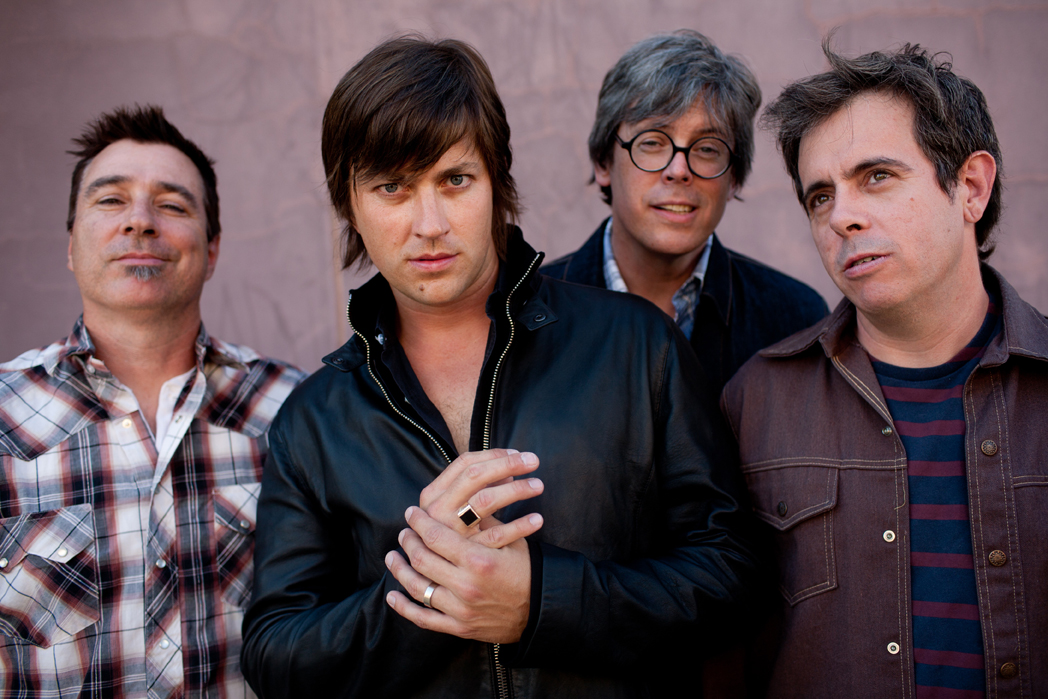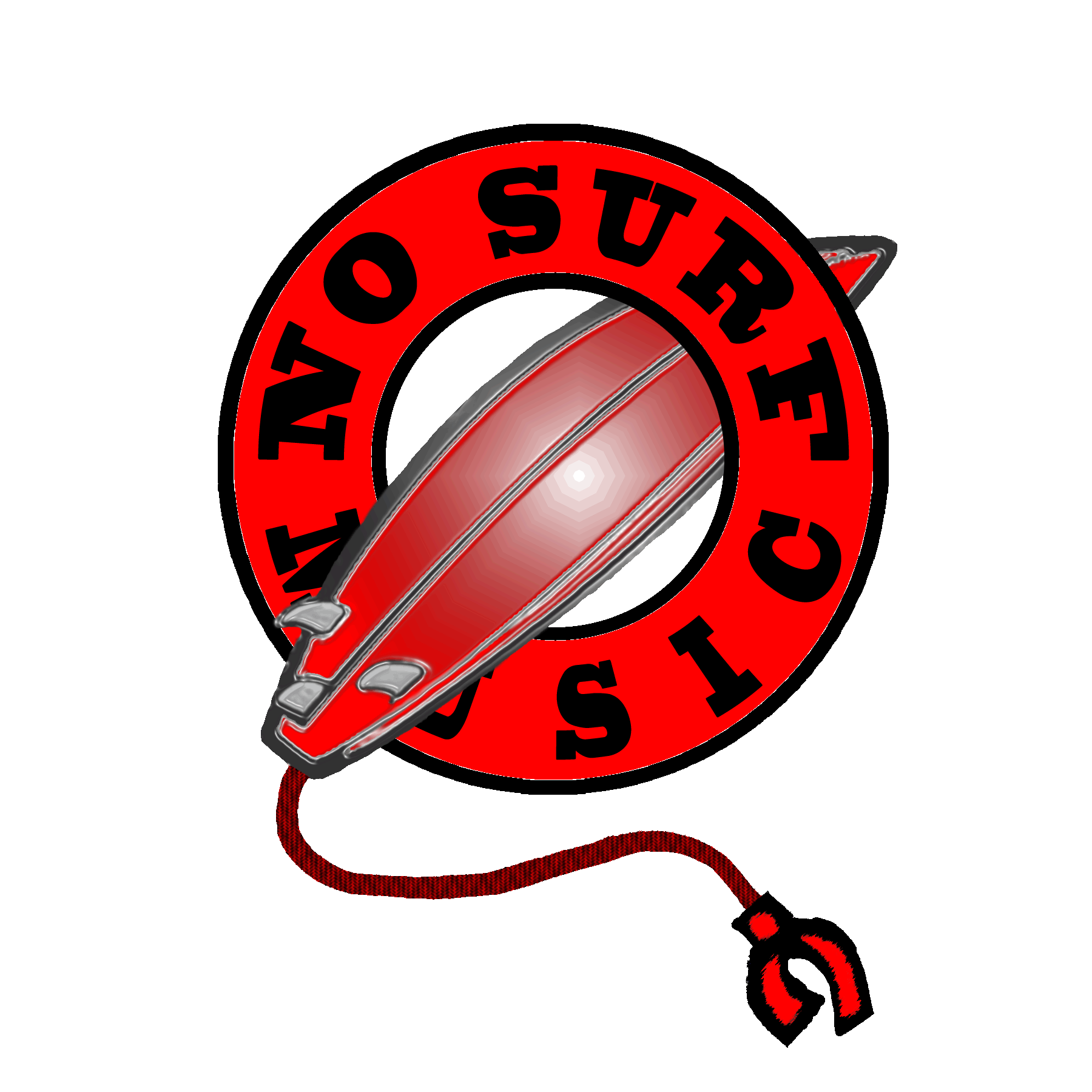
The Lowdown:
April 19, 2011
Old 97's: The Grand Theatre, Volume 1
by Jason D. 'Diesel' Hamad
Old 97's, attempting to exude coolness, but really just looking like goofy bastards. (l-r) Ken Bethea, Rhett Miller, Murry Hammond, Philip Peeples. Photo by Allison Smith.
They may not have been the first to blend country and rock elements together, but with nearly two decades at the vanguard of the alt country scene under their belts, Old 97’s have become the gold standard. Their sound has influenced everyone who has come after. While never achieving huge commercial success in the niche market within which they work, they’ve garnered a large cult following, especially among those who have experienced their high-energy live performances, and they have served for many as an introduction and primer into the most vital musical scene in the U.S. today.
Their latest work, The Grand Theatre is being released in two parts. Volume 1 was issued in late 2010, while Volume 2 dropped July 5, 2011 (click here for The No Surf Review). The project comes as a result of a weeklong residency at Sons of Hermann Hall in Dallas, where they tested out the new materiel before recording it in studio. It continues a long string of well-crafted, highly entertaining albums.
Old 97’s are best when their music is vibrant and fast-paced (any band named after a train wreck better be), and in this respect, The Grand Theatre does not disappoint. In fact, with the exception of three surreal, dreamy songs—“Let the Whiskey Take the Reins," "Love is What You Are," and the very slow, somewhat strange waltz, "The Beauty Marks”—all the tracks are rollicking and energetic.
The best song on the album is undoubtedly “Champaign, Illinois.” Now, I have family in Champaign, so I’ve had the opportunity to visit a number of times in my life, and while I’d certainly never equate it with heaven, neither would I compare it to hell. Purgatory would be the last metaphor I’d have in mind. It is, in fact, a pretty nice little college town. However, I’ve spent most of my life living within spitting distance of Kent State, and now that I think about it, a college town is a little like purgatory. The townies are always the townies, complaining about the kids making too much noise. The students come and go on an infinite loop four-year rotation. Nothing ever really changes, only the faces. Maybe that’s what Rhett Miller was thinking when he wrote:
Up north in Chicago
Where booze makes no one blush
Memories come back to you
In a double bourbon rush.
Memories, they aren't all bad
And neither, my friend, are you.
There is an argument there must be some heaven meant
For hearts that are half true.
Oh, yet if you spend your whole life
Rollin' horses into Troy,
No, you will not go to heaven;
You'll go the Champaign, Illinois.
The song is not a new one. It’s been kicked around for a couple years, occasionally cropping up in live shows, but never committed to an album. The reason for that is simple. They kind of stole it. But if you’re gonna crib a song, you could pick worse marks than Bob Dylan. “Champaign” is, in fact, “Desolation Row,” sped up and sung with a bit of Texas twang. Apparently, Rhett was sitting in the back of a (possibly seven-seater) tour van, rolling not into Cleveland, but through the land of Lincoln. Tiring of downing Old Crow (which, frankly, only multiplied his sorrow till he just couldn’t take it anymore), he started writing some songs. But with his guitar out of reach, he was prevented from picking out any new tunes. He got the Highway 61 Revisited classic stuck in his head, and simply wrote his lyrics to that, either picking up the name Champaign from a road sign or just having a fixation on booze and liking the ring of it. Eventually, the band managed to get the revised version into the hands of the Hollerin’ Hebrew From Hibbing, who did them a mitzvah and agreed to split the writing credits. Oddly, Dylan also co-wrote another song titled “Champaign, Illinois,” that one in 1969 with the legendary Carl Perkins.
Perhaps they come with less engaging creation myths—most having been written while Rhett was on a European solo tour opening for Steve Earle—but a number of other songs on the album are also highly entertaining. For instance, the title and lead-off track (pronounced “Grand The-ate-‘er,” apparently, if you happen to be from Texas) is a hard-rocker filled with flying guitar licks and replete with Brit references gained on the tour. My favorite of these is:
I take you to the Tate Museum.
There's pictures there but I can't see 'em.
If you was there I'd overlook
The Roman Coliseum.
It would not stand a chance.
I once had a very similar experience at the Tate Modern involving a girl carrying a bouquet of yellow lilies and standing in front of a Picasso I barely even noticed.
Other highlights include the album’s first single, "Every Night is Friday Night (Without You),” which turns the energy dial up to eleven. It may not claim the deepest lyrics ever scribbled on the back of a warm-beer soaked Soho bar napkin, but it is a lot of fun. The next song, “The Magician,” suffers from an almost pathological overuse of the word “you” and its attempt at insight seems overreached. It does, however, manage to maintain the high energy of the previous tracks and is worth multiple plays… if you don’t listen too hard. "A State of Texas" is a frantically paced tribute to the land of longhorns, with down-home local references peppering the lyrics throughout.
Besides Rhett Miller’s contributions, one of the two songs written and sung by bassist Murry Hammond is also quite good. "You Were Born to Be in Battle,” which he describes as a “stab at 60’s Johnny Cash,” is a little slower and delivered with a lighter hand than many of the other tracks, but still filled with its own kind of force. It is a song about a man going through the four seasons of life and how he faces challenges at each stage. Finally, Murry tells the poor old man:
In the winter of life
You'll be asked for your life.
Lay down, all forts surrender.
And all that is you,
That is precious and true,
As your full price you'll tender.
The Grand Theatre, Volume 1 may contain fewer all-out ass kickers than many of Old 97’s previous releases, but overall it is one of their most consistent albums. For a band best-known for their live show prowess, they nevertheless continue to produce fine studio work.
| mp3 | cd |
|---|---|






